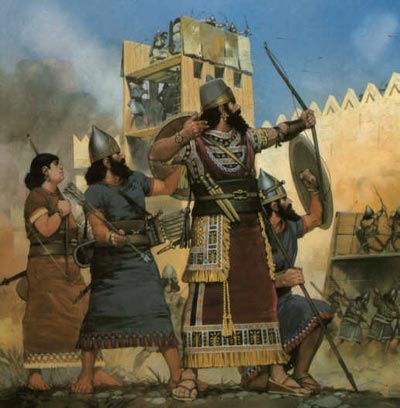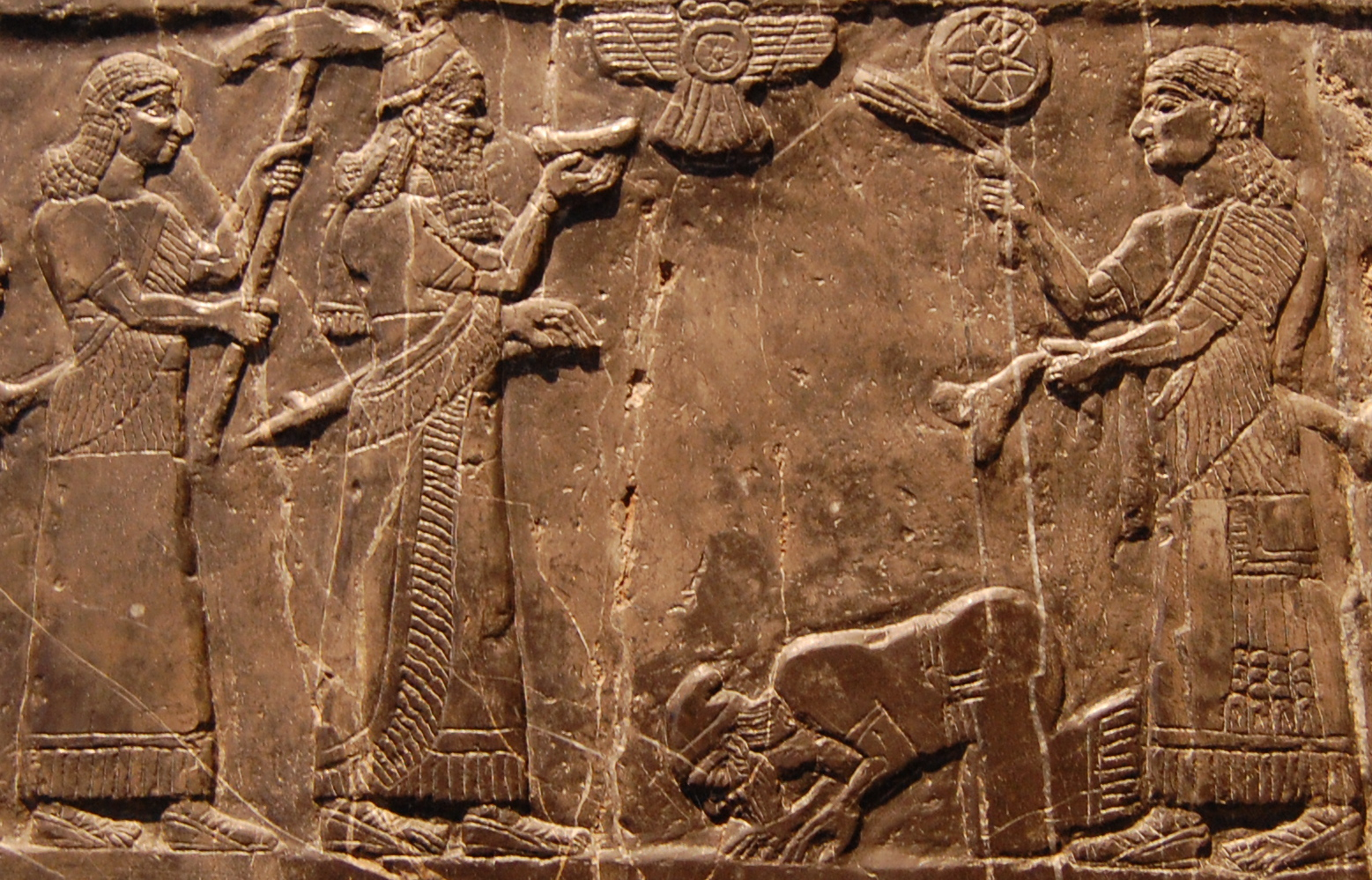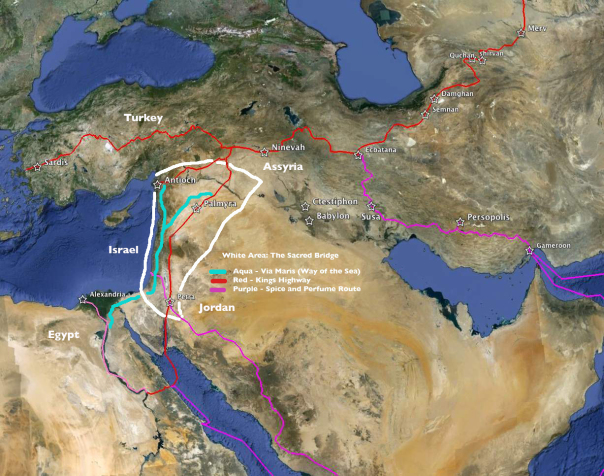Damascus Became a Ruinous Heap
DAMASCENE PROPHECIES
Isaiah 17:1-3
1The burden of Damascus. Behold, Damascus is taken away from being a city, and it shall be a ruinous heap. 2The cities of Aroer are forsaken; they shall be for flocks, which shall lie down, and none shall make them afraid. 3And the fortress shall cease from Ephraim, and the kingdom from Damascus, and the remnant of Syria; they shall be as the glory of the children of Israel, saith Jehovah of hosts (ASV, 1901).
This prophecy of Damascus, Syria is titled a burden or in the Hebrew a “massa.” This is a heavy, heavy set of declarations on this city. At the time Isaiah wrote this oracle against Damascus the Northern ten tribes of Israel had allied with Syria called Aram in the Bible. Because Assyria had threatened the Southern Kingdom of Judah God spoke through Isaiah the prophet to the southern kingdom of Judah assuring them that Damascus would become a ruinous heap (Hebrew Mapala) and not a threat. This conquering and despoiling was done by Tiglath-pileser king of Assyria, as explained in 2 Kings 16:9 it had been a very ancient city and now was in ruins. This city would be rebuilt and then destroyed by Nebuchadnezzar the Babylonian King described in Jeremiah 49:21. Therefore, this prophecy given to Isaiah was fulfilled in the two invasions of Damascus by Assyria and Babylon both of which destroyed the city and left it in ruins (Mapala).
It is important to see how the Northern kingdom of Israel aligned itself with Damascus. These are some references to what happened to Damascus primarily for Israel (northern 10 tribes) aligning itself with pagan Damascus.
- Damascus has become helpless (Jeremiah 49:24).
- The king of Assyria took Damascus and exiled its inhabitants (2 Kings 16:9).
- Ahaz copied the altar in Damascus (2 Kings 16:10).
- Ahaz sacrificed to the gods of Damascus (2 Chronicles 28:23).
- I will set fire to the wall of Damascus (Jeremiah 49:27).
- The spoil of Damascus and Samaria will be carried away to Assyria (Isaiah 8:4).
- Is not Samaria like Damascus? (Isaiah 10:9).
- The kingdom will disappear from Damascus (Isaiah 17:3).
- I will break the [gate] bar of Damascus (Amos 1:5).
- For three transgressions of Damascus and for four (Amos 1:3).
- The oracle of the word of the Lord will rest on Damascus (Zechariah 9:1)
From Isaiah 7:1–2. We see that Rezin, king of Aram, northeast of Israel, and Pekah king of Israel (752–732B.C.) had made an alliance. Rezin may have usurped the throne of Aram, and Pekah was a usurper. Rezin was Aram’s last king, and Pekah was Israel’s next-to-last king. After Jeroboam II (793–753) of Israel died, the Northern Kingdom became increasingly weak. Rezin convinced Pekah to join him in a war against the Southern Kingdom of Judah (2 Kings 15:37; 16:5). They threatened to replace Judah’s King Ahaz with a puppet king (Isaiah 7:6). The prospect of such formidable enemies as Aram and Israel caused the people of Judah to be afraid. The house of David (v. 2) refers to King Ahaz who was of that kingly line. Hearing of the Aram- Israel alliance Ahaz was terrified. Ephraim, Israel’s largest tribe, represented in a synecdoche the entire northern nation as is also the case in the Book of Hosea (Hosea 4:17; 5:3, 5, 9–14). This was in the year 734 b.c.Ahaz foolishly thought he could call on the Assyrian King Tiglath-Pileser III (745–727) to come to his aid and attack the Aram-Israel confederacy. What happened though was the king of Assyria took Damascus and exiled its inhabitants (2 Kings 16:9). Then in 722 B.C. He conquered the Northern Kingdom and took them back to Assyria and populated the Northern Kingdom with people from many different areas.
IL Kings 17:24
24And the king of Assyria brought men from Babylon, and from Cuthah, and from Avva, and from Hamath and Sepharvaim, and placed them in the cities of Samaria instead of the children of Israel; and they possessed Samaria, and dwelt in the cities thereof (ASV, 1901).
The inbreeding of these people with the remaining people of the Northern Kingdom of Israel produced the Samaritans which were hated by the Jewish people.
The Arab states and Damascus will all receive a final judgment at the start of the Messianic Kingdom. It is difficult to predict if there will be another invasion of Damascus before the final destination which is a result of their perpetual hatred of Israel as characterized as early as Numbers 20:14-21 and in summary form in Psalm 83:1-8. Some believe that the civil war which started in 2011 in Syria is a fulfillment of the prophecy in Isaiah 17:1, but there is no biblical indication that this is accurate. It is outside sound hermeneutics to look to the news first in order to justify a prophecy in the Bible. We look to the Bible to see what God has said will happen then look to world events to see if they match up exactly as prophesied.
Damascus presently is not in ruin as when the Assyrians and Babylonians destroyed the city. Some might view this prophecy in Isaiah 17:1 as indicative of a type of prophetic fulfillment called the “double reference.” Hermeneutically those instances refer to a near and far term view of a prophecied event such as in Deuteronomy 18 where Moses predicts a prophet who would succeed him. Although Joshua fulfilled the near-term fulfillment, Acts 3:22-23 applies it to Jesus, hence, the near and far view fulfillment. There might be yet a future destruction of Damascus equally ruinous as the Assyrian and Babylonian destructions were, but so far it has not occurred. There is still no biblical reference to a far term reference to this despoiling of Damascus in our time as the Acts 3:22-23 passage refers to the far term fulfillment of Jesus as the object of Moses’ prediction of a prophet to succeed him. Many see the text of Psalm 83:1-8 as the fulfillment of the far term prophecy of Isaiah 17:1 but that is simply an imprecatory Psalm, not a prophecy of an event that will come to pass. Therefore there is no clear indication in the Bible that this will have a far term fulfillment.
God says that in the Messianic Kingdom He will bring peace between Israel and Damascus (Part of Assyria) through a conversion of their peoples to become believers and live with Israel in peace in the Messianic Kingdom.
Isaiah 19:23-25
23In that day shall there be a highway out of Egypt to Assyria, and the Assyrian shall come into Egypt, and the Egyptian into Assyria; and the Egyptians shall worship with the Assyrians. 24In that day shall Israel be the third with Egypt and with Assyria, a blessing in the midst of the earth; 25for that Jehovah of hosts hath blessed them, saying, Blessed be Egypt my people, and Assyria the work of my hands, and Israel mine inheritance (ASV, 1901).
Verse 23 describes a highway which connects Egypt, Israel and Assyria. In the Messianic Kingdom, when peace will be restored, all borders will be open, and this highway, a symbol of free trade trafficking, will be restored between these Middle Eastern states. The means by which this will occur is conversion (vv. 24–25). Not only will Egypt undergo a conversion experience, but so will the ancient area of Assyria. Assyria will become a blessing in the earth and will receive a blessing from God. The three former enemies will now be spiritually and economically unified. So peace during the Messianic Kingdom will come between Israel and Assyria (part of Syria) by means of conversion. When this happens, there will be economic, political, and religious unity, because they will all worship the same God.
Daniel E. Woodhead



